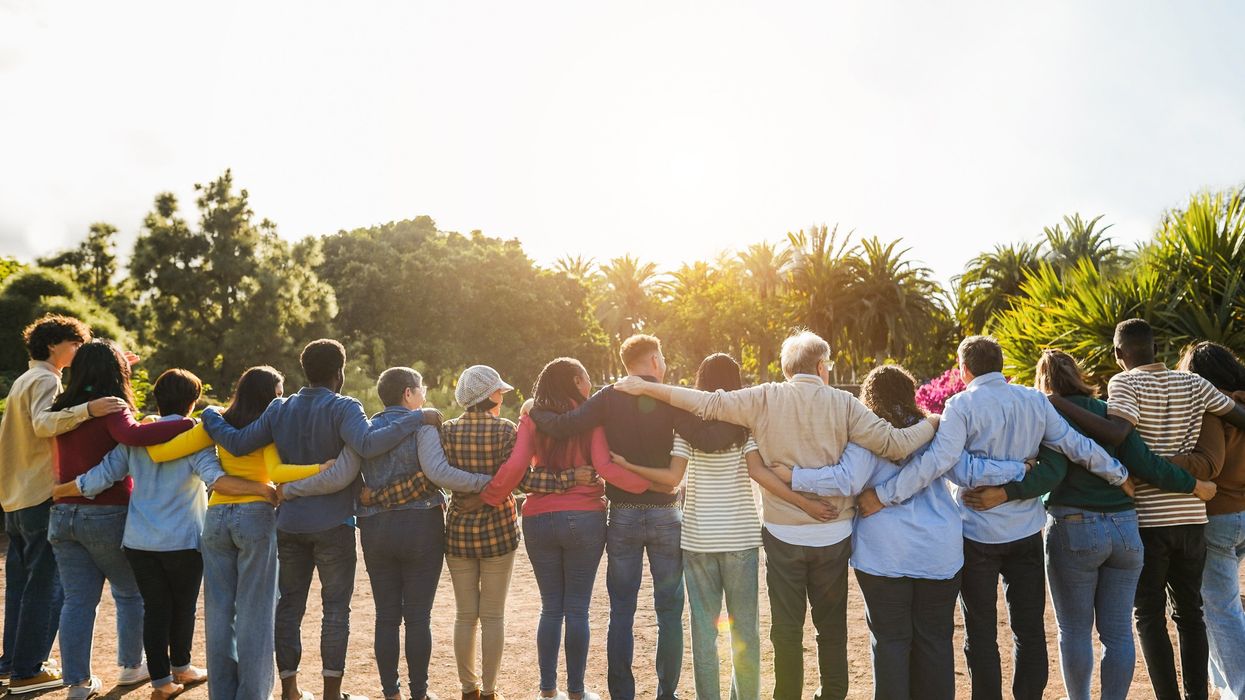Becvar is the executive director of the Bridge Alliance Education Fund, which houses The Fulcrum.
Each week, I dive deep into the pulse of our collective efforts within the Bridge Alliance, exploring the tapestry of initiatives and activities of the healthy democracy field. At times, our work is galvanized by pivotal events, both within the United States and globally, or inspired by cultural milestones, like Taylor Swift pushback or the Tracy Chapman/Luke Combs duet at the Grammy Awards.
This week’s reflection transcends any specific political or cultural narratives. A different kind of theme stood out: the intrinsic interdependence of our diverse fields of work.
Over the years, the areas of focus brought together by the Bridge Alliance have clarified into organizations dedicated to bridging divides and peacemaking, reforming elections and governance, improving civic education and engagement, and spreading trustworthy information. Our founders and team continually work to define how these areas of practice strengthen one another and actively seek to intertwine the domains and amplify their collective impact. Last week highlighted the importance of how two of those domains – bridging divides and electoral and governance reform – really need each other.
There are updates about the successes and challenges of ranked-choice voting in 2023, the challenge of A.I. regulation, testimony on social media policy reforms, state efforts to minimize voters, rock-bottom primary election turnout, campaign finance reform, the debate over immigration, and the challenge of former President Donald Trump’s false allegations about U.S. elections. The breadth of these challenges is as daunting as it is invigorating, yet they are matched by the community’s efforts toward social cohesion and civic engagement.
One highlight was the National Civic League’s webinar with leaders of the Bridging Movement Alignment Council and the #DisagreeBetter Campaign. They offered tools for having conversations with those we disagree with on many of the issues mentioned above. Podcasts discuss how curiosity can bridge dangerous divides and give insights into retaining our humanity in these divided times. Additionally, upcoming events provide opportunities to join discussions with thought leaders like Katherine Gehl and Jonathan Haidt offering insights into reforming our electoral systems, safeguarding democracy, and the societal impacts of social media.
The journey towards bridging divides and fostering social cohesion is often viewed through a skeptical lens, perceived as overly idealistic or disconnected from the broader socio-political challenges. Yet, my personal evolution from a self-identified pessimist to an unwavering optimist underscores a fundamental truth: advocacy for change is rooted in the belief in its possibility. Acknowledging our challenges doesn't equate to succumbing to pessimism; rather, it propels us to forge expansive coalitions, uniting diverse voices to dismantle entrenched power structures that hinder our progress.
In the face of current uncertainties and discord, I draw my hope from recognizing that within this reality lies an opportunity to galvanize broader engagement, drawing individuals out of complacency and into action. The Bridge Alliance and the wider healthy democracy ecosystem have been building capacity and laying foundational groundwork to welcome those individuals for years, and stand ready to lead with solutions, resilience, and an unwavering commitment to democracy.
As we move forward, I carry with me a profound sense of gratitude for this community, our collective endeavors and the tools at our disposal to navigate these times. It's a reminder that our work is not only necessary but pivotal in shaping the future of our democracy. Let this realization fuel our efforts in the coming week and beyond.




















Trump & Hegseth gave Mark Kelly a huge 2028 gift